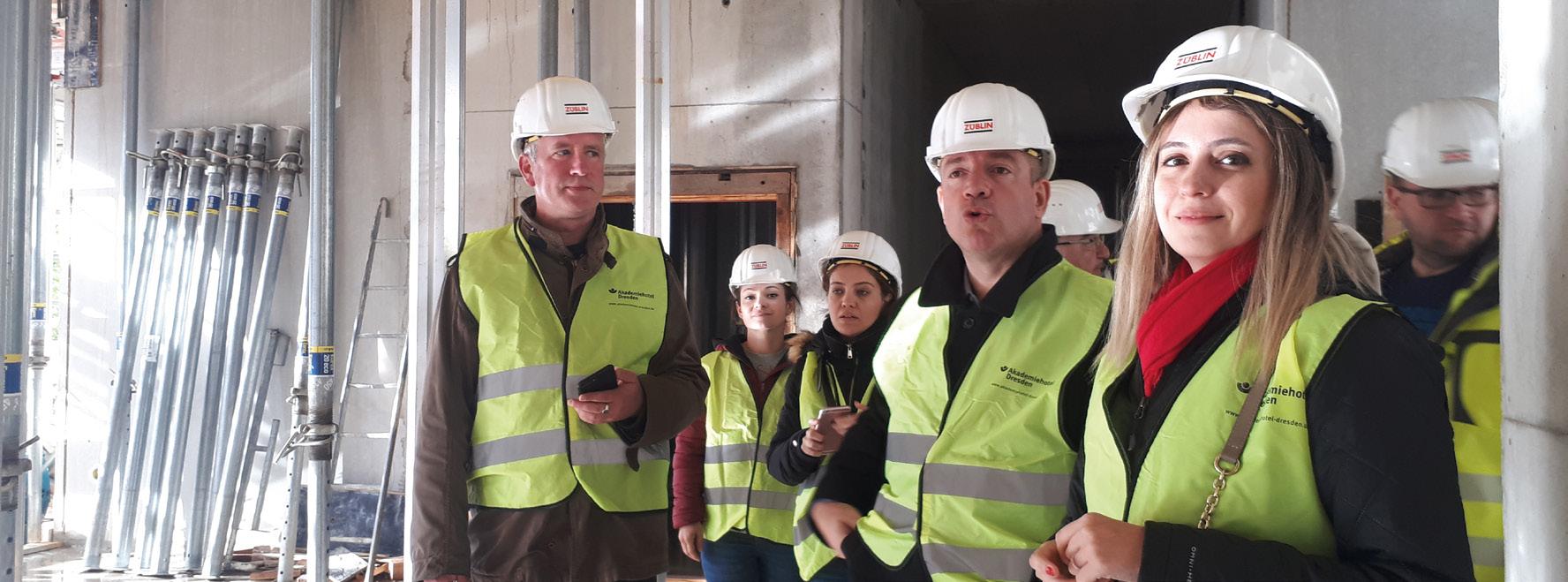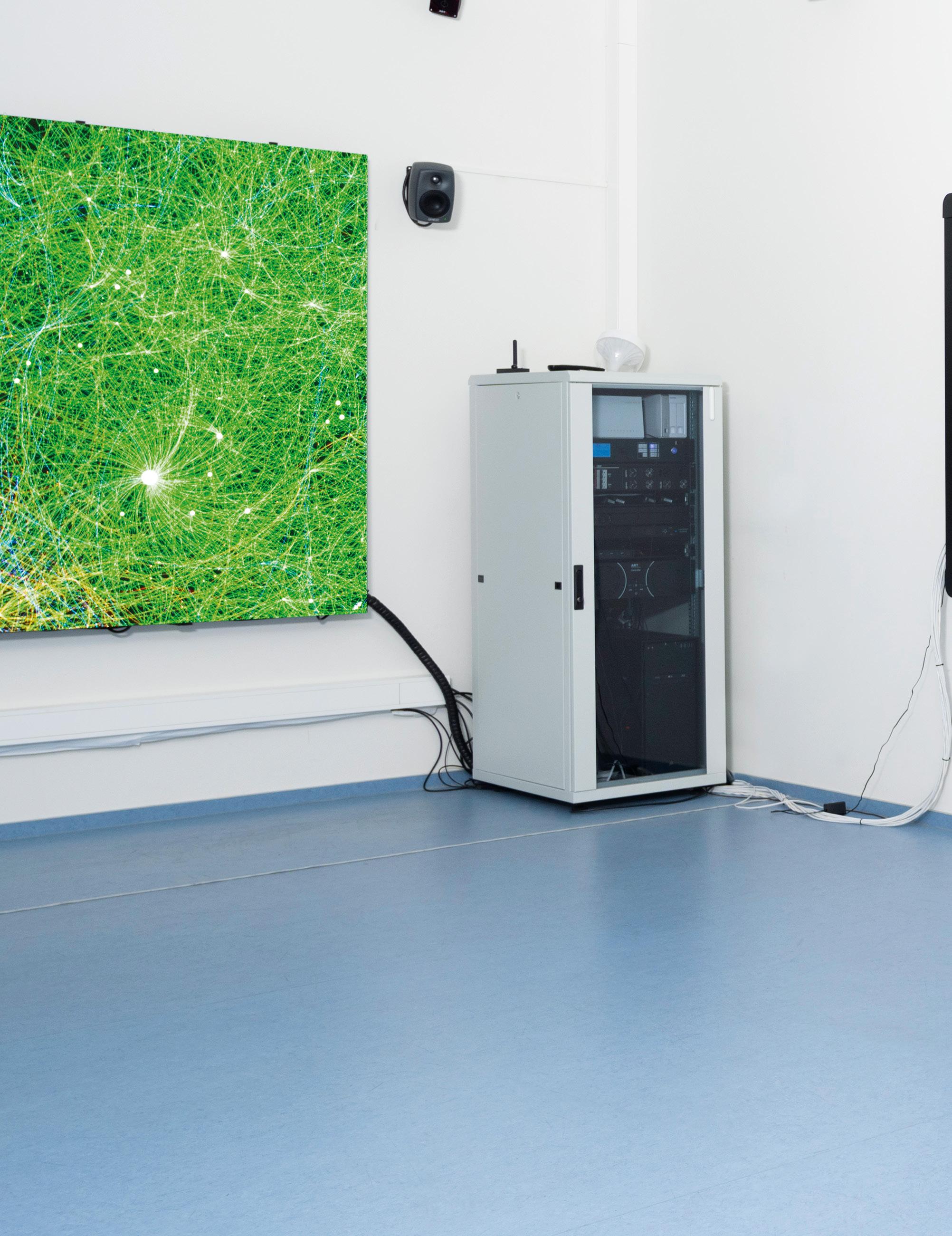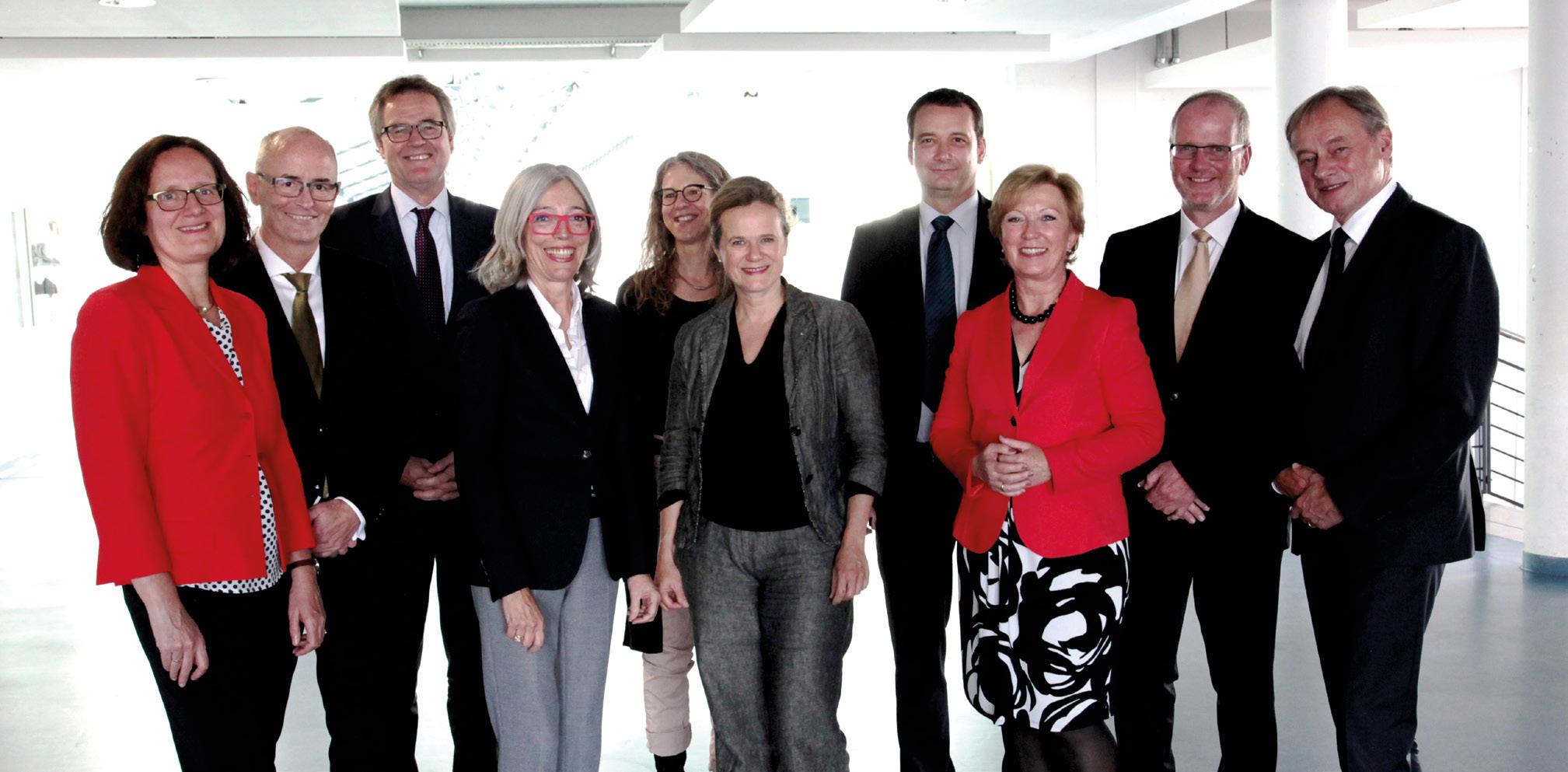
2 minute read
innovation partnerships
Campus to World: One component is community innovation partnerships through which the university promotes networking with business and society in the region
University office in the town hall
Community innovation partnerships generate impulses for rural development
Urbanisation is a topic in Germany. In 2018, around 80% of all Germans were crowded into metropolitan areas, which make up only 37% of the country’s total area. Thus the remaining 20% of the population had 63% of the land at their disposal. This is a reason to reflect on the declining attractiveness of rural regions. With the pilot project “Municipal Innovation Partnerships”, Hochschule Bonn-Rhein-Sieg sets new impulses for rural development. “The concrete aim is to transport the know-how of higher education institutes to rural areas without immediately opening a university location there”, says Professor Klaus Deimel, Director of the Centre for Entrepreneurship, Innovation and SMEs (CENTIM) at H-BRS.
KIP is part of the “Campus to World” project with which the university is pursuing the goal of strategic networking with business and society in the region. The researchers at KIP are developing a toolkit for cooperation with companies, citizens, politics and administration. It is being tested in the pilot community of Neunkirchen-Seelscheid in the Rhein-Sieg district. Mayor Nicole Sander is hoping for many positive effects: “We want to create a sustainable, stable and future-proof opportunity for companies and the people who live here”.
The first measures were implemented in 2019. They include workshops with various interest groups and the opening of a university project office in the town hall. Once a week, a contact is available to speak to here. Companies that would like to get input from the university on questions of research, marketing or even at the time of founding come here. But the initiative also advises citizens at a so-called CitizenLab on topics such as the creation of wildflower meadows in the urban area. The university supported this by taking and analysing soil samples, thus ensuring that a species-rich meadow would flourish. At the same time, this will enable the International Centre for Sustainable Development to conduct research on site-adapted forms of use.
The project also advises political decision-makers on the initial qualification steps necessary for an application for economic development and on those that the municipality could not have implemented on its own. “There are networks and expertise”, says Nicole Sander. “It‘s a valuable gateway to a world we would not otherwise have known.“
More information: www.h-brs.de/en/ Municipal_Innovation_Partnerships









